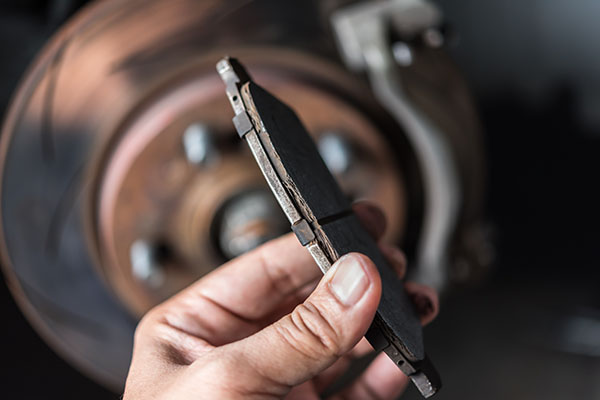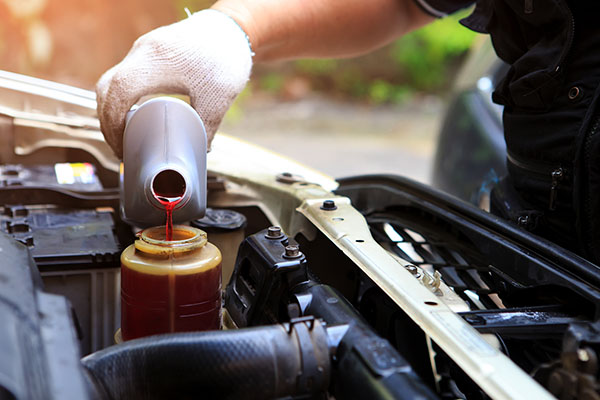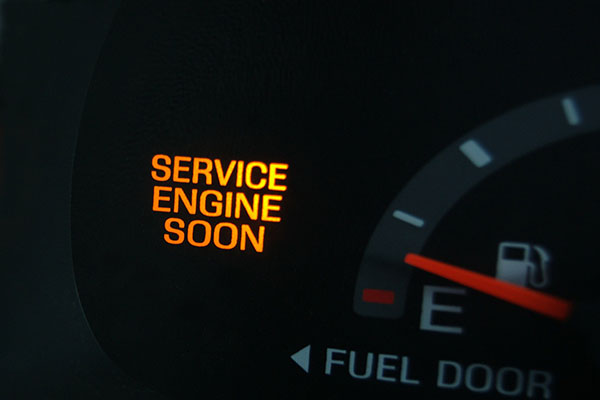Posted on 6/29/2023

When it comes to vehicle safety, the braking system plays a crucial role. The performance and reliability of your brakes depend heavily on the quality of the brake pads and rotors. Opting for high-quality brake components may come with a higher upfront cost, but the benefits far outweigh the investment. #1 Enhanced Stopping Power High-quality brake pads and rotors are engineered to deliver exceptional stopping power. They are designed to provide more efficient and responsive braking, reducing the stopping distance and enhancing overall safety. With improved stopping power, you can have better control over your vehicle and confidently navigate various driving conditions. #2 Consistent Performance One of the key benefits of high-quality brake pads and rotors is their ability to maintain consistent performance over time. Unlike inferior brake components, which may experience diminished braking effectiveness or uneven wear, high-quality options o ... read more
Posted on 5/31/2023

Summer is the perfect time for a road trip, and California is a great destination for exploring with its beautiful beaches, stunning landscapes, and charming towns. Before we continue, make sure to get your car serviced and checked before you embark on your journey. Here are a few destinations that are perfect for a summer road trip: Big Sur - The perfect hiking experience and beach day Located along the central coast of California, Big Sur is a breathtaking stretch of coastline that offers stunning views of the Pacific Ocean. The area is home to several state parks, hiking trails, and beaches, making it a great destination for nature lovers. Take a drive down Highway 1 to fully experience the beauty of Big Sur. Lake Tahoe - Clear water, parties, and a lot of sun Lake Tahoe is a popular summer destination in California with its crystal clear waters, sandy beaches, and numerous outdoor activities. Visitors can enjoy hiking, biking, fishing, and wate ... read more
Posted on 4/30/2023

Coolant plays a critical role in maintaining the optimal temperature of your vehicle's engine. It helps prevent overheating and freezing, ensuring smooth engine performance. However, not all coolant is the same or universal. There are different types of coolant available, each with its own composition and specifications. In this blog post, we will delve into the differences between coolants and emphasize the importance of selecting the right coolant for your vehicle. Here are the main types of coolants that will be covered by the blog:Ethylene Glycol-Based Propylene Glycol-BasedHybrid Organic Acid Technology (HOAT)Dex-Cool1. Ethylene Glycol-Based Coolant Ethylene glycol-based coolant is one of the most common types of coolant used in vehicles. It is known for its excellent heat transfer propert ... read more
Posted on 3/30/2023

If there is one component of a vehicle that is extremely important, it is without a doubt the engine. After all, the engine is entirely responsible for providing the vehicle with the power it requires to move and operate. As a result, any damage to the engine or its components will have an immediate negative impact on how the vehicle performs in some way. 1. Check Engine Light When it comes to spotting problems in your vehicle before they get too serious, your best friend will be the check engine light. It indicates problems with the engine or other important parts. Make sure to visit a repair shop ASAP if it is blinking - it means that there is a very serious problem. 2. Grinding Noise Weird noises are never a good sign. Grinding from the engine bay is a very bad one. It can be caused by loose parts, blown cylinders, forgotten nuts or bolts, and a lot more. The noise is unmissable and will probably be accompanied by some of the other symptoms on t ... read more
Posted on 2/27/2023

Spring break is one of the most anticipated times of the year for college students, families, and anyone looking for a getaway. Before you hit the road, it is essential to ensure your car is ready for the journey. Here are some tips on preparing your car for spring break road trips: Inspect your tires Your car's tires are the most critical safety feature, and it's essential to check them before you hit the road. Ensure they are properly inflated, have sufficient tread, and are not damaged. If your tires are bald or damaged, it's time to replace them before you set off on your trip. Get an oil change Getting an oil change before a long road trip is always a good idea. The oil helps to lubricate your car's engine, and old or dirty oil can cause damage to your engine. A fresh oil change can help ensure that your car runs smoothly and efficiently. Check your brakes Your brakes are crucial to your safety on the road, and it's vital to ensure they are in good workin ... read more